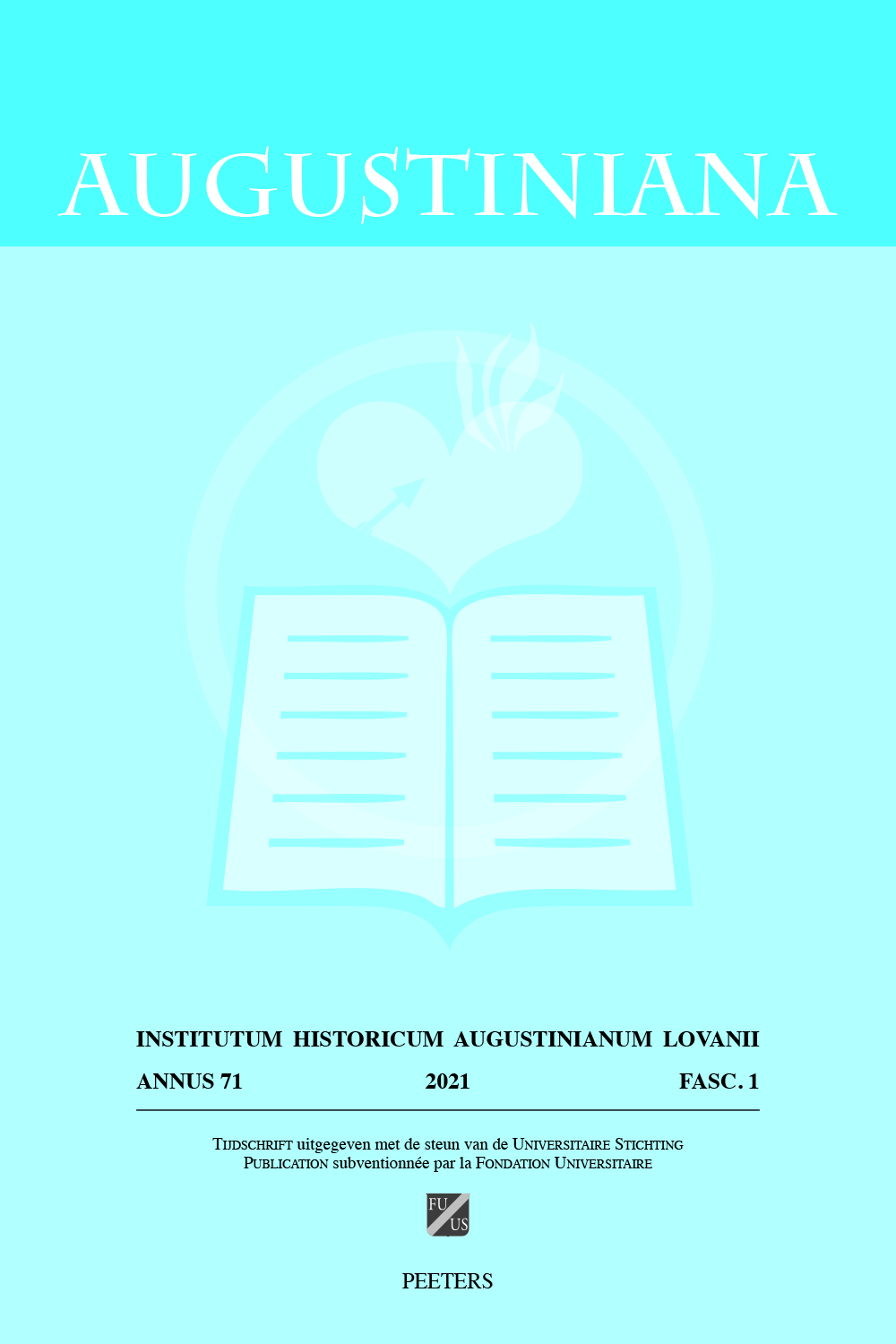 previous article in this issue previous article in this issue | next article in this issue  |

Preview first page |
Document Details : Title: Holy Spirit and Church in the Early Augustine Author(s): FINN, Douglas Journal: Augustiniana Volume: 64 Issue: 1-4 Date: 2014 Pages: 153-185 DOI: 10.2143/AUG.64.1.3080611 Abstract : Recent scholarship on Augustine has begun to uncover the richness of his doctrine of the Holy Spirit. This essay aims to contribute to new research focused on the pneumatology found in Augustine’s earliest writings by highlighting the ecclesiological dimension of his doctrine of Spirit. In the first half of the essay, I survey dominant scholarly narratives of Augustine’s earliest understanding of the church, on the one hand, and of his early doctrine of the Holy Spirit, on the other. These narratives tend to read Augustine in a heavily Neo-Platonic light, with the result that: (1) Augustine’s earliest articulations of the incarnation and church are interpreted as extrinsic to his predominantly introspective philosophical program; and (2) a wedge is driven between Augustine’s understanding of the outward work of Christ and the more inward work of the Holy Spirit. Over against these narratives, I then set recent scholarship on Augustine’s early Trinitarian theology as well as on his early understanding of scriptural exegesis. I argue that the latter, in particular, helps us see how Augustine’s theology is from the outset 'incarnational', broadly understood. As such, we can best understand the emergence and intersection of his early pneumatology and ecclesiology within this incarnational-scriptural framework. To substantiate that claim more concretely, then, I turn in the second half of the essay to Augustine’s earliest anti-Manichean text, The Catholic Way of Life and the Manichean Way of Life (De moribus ecclesiae catholicae et de moribus manichaeorum). Scholars have observed in that work the association of love language with the Holy Spirit. Additional language of pneumatological significance in De moribus, namely that of harmony [concordia] and peace [pax], has been attributed to Augustine’s anti-Manichean theology of scripture. I argue that even that theology of scripture can only be fully understood in light of Augustine’s nascent understanding of the Catholic church as a part of the whole history of salvation, which is in turn comprehensible only through the lens of the incarnation. Against that backdrop, an intrinsic conceptual relationship between pneumatology and ecclesiology is emerging already at this early stage in Augustine’s thought. |
|


